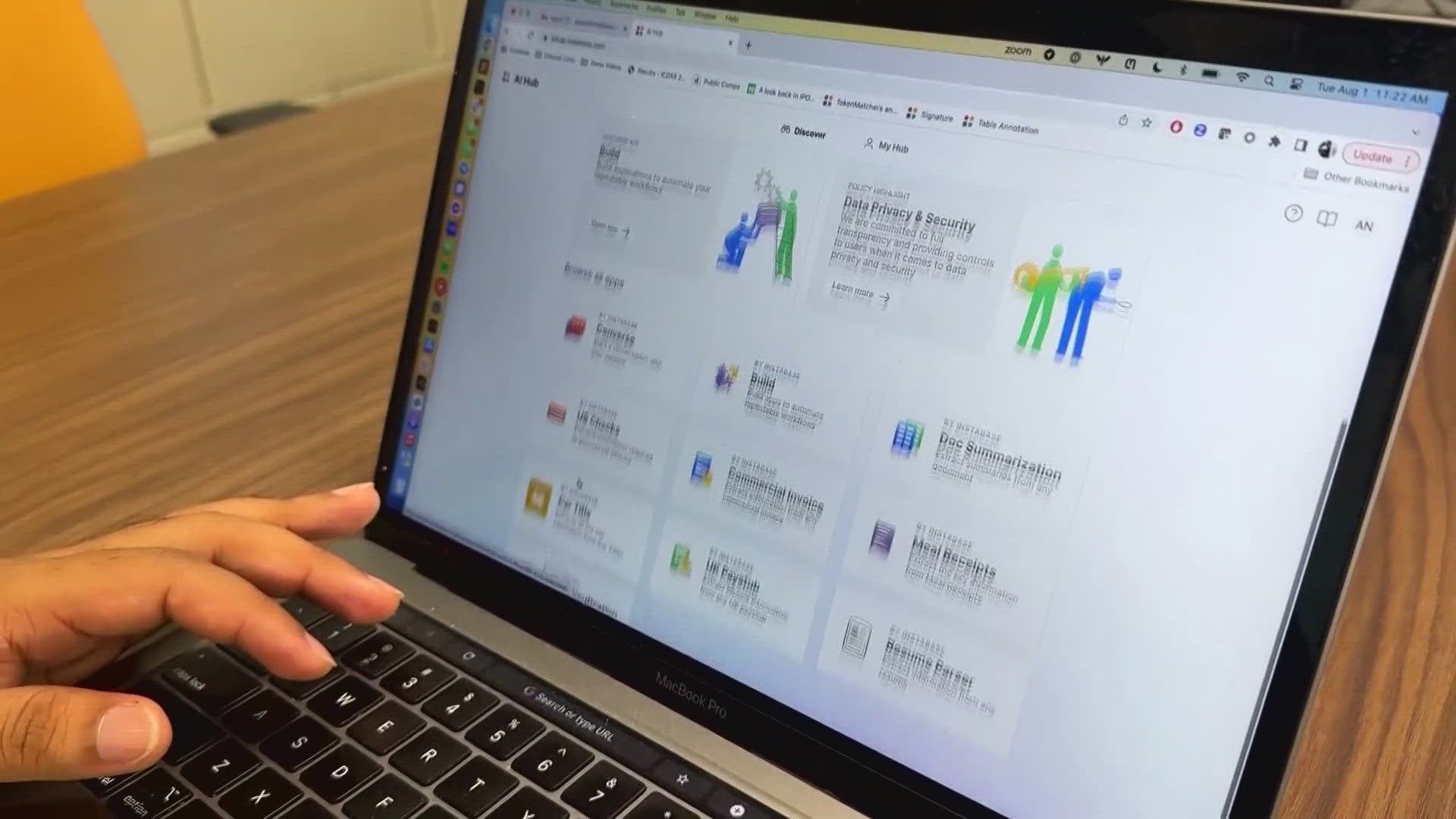WASHINGTON — Imagine you're in a stressful situation, such as you have a flat tire and you're stuck on the side of the road in the middle of nowhere. The tow truck company then charges more money, simply because it knows you're stuck and willing to pay more to get help.
That's a hypothetical example of how surveillance pricing could work. Surveillance pricing is the practice of using personal information about someone to set the price, according to the Federal Trade Commission. The FTC said the data may include information such as location, demographics, credit history, browsing, and shopping history to set a targeted price for a product or service.
The agency said that artificial intelligence is used to optimize the pricing. Some people could pay more, others could pay less, depending on the characteristics.
The FTC has now launched an investigation into the tactic and ordered eight companies that offer surveillance pricing products and services that incorporate data about consumers’ characteristics and behavior.
The FTC said it sent orders to Mastercard, Revionics, Bloomreach, JPMorgan Chase, Task Software, PROS, Accenture and McKinsey & Co.
“Firms that harvest Americans’ personal data can put people’s privacy at risk. Now firms could be exploiting this vast trove of personal information to charge people higher prices,” FTC Chair Lina M. Khan said in a statement.
“Americans deserve to know whether businesses are using detailed consumer data to deploy surveillance pricing, and the FTC’s inquiry will shed light on this shadowy ecosystem of pricing middlemen," Khan said.
Futurist expert and founder of WAYE, a tech education company, Sinead Bovell said companies collect a lot of data about people that can be used for pricing.
"We've all known for years that companies for years have been collecting troves and troves of data on us, including our characteristics, our emotional state, our credit profile, our location and they can even build psychological profiles. And they can use artificial intelligence or advanced algorithms to analyze all that data and they can use it to predict our personal, individual willingness to pay for a product," Bovell explained.
"So you may see an inflated price for the exact same product that your neighbor just bought," Bovell said. She said that the FTC hasn't concluded that this is actually happening in the marketplace, but the agency is investigating it.
In April 2023, a newspaper based in Brussels accused Uber of charging consumers more based on the battery charge of their phones. The newspaper, Derniere Huere, did a simulation where two people, standing in the same place ordered an Uber ride to the same destination. The person with 12% battery life was charged approximately 96 cents more than the person with 84% battery life. Uber has denied claims that the company charges more based on battery life. An Uber spokesperson said prices are based on demand and available drivers.
In a 2016 interview with NPR, former Uber executive Keith Chen said Uber found that people were willing to pay higher prices during a price surge if their cell phone battery was low. Chen said the company does not use that information to set prices.
In 2012, The Wall Street Journal reported that travel website Orbitz found that Apple's Mac computer users spent up to 30% more on hotels than Windows PC users. As a result, the company showed Mac users different hotel options and sometimes higher-priced options than what PC users saw.
There Could Be Benefits For Some
A study by professors at the University of Chicago Booth School of Business found that while some consumers paid more, a good number of consumers paid less. In the study Scalable Price Targeting, researchers tested a pricing model for ZipRecruiter and found that 67% of consumers paid less than the standard price. Profit margins were also higher using targeted pricing, according to the study.
Distinguished Booth School of Business professor Jean-Piere Dube authored the study and said personalized pricing is not new and technology only enhances it.
"It's kind of like taking a pricing scenario that already exists all over the place. When you walk into a car dealership, the dealer negotiates and talks to you. And through conversation and just by seeing you they can learn about your race. They can learn about your gender. They can probably learn about your socio-demographics. And then by conversation, they can learn about where you live, and all of these things are taken into account of the price negotiation," Dube explained.
"And in theory, a good car salesman at a car dealership would then be able to personalize the price through the willingness to negotiate with you. What our software would do is just automate that process and take the data and use it objectively," he said.
Dube said personalized pricing is an opportunity for businesses to reach customers that they normally wouldn't be able to reach.
"The word surveillance pricing is a relatively new word but you can see it really connotes something evil and sinister. The reason why I think people are kind of upset about this practice is that there’s an assumption and it’s misleading,” Dube said.
“So when we start thinking ‘well what’s the harm in all this', I suppose you could argue there’s going to be some winners and losers. Some customers are going to pay more, some customers pay less. But overall in the Zip Recruiter setting, what we found was that 67 percent of customers paid a lower price," Dube said.
Limiting Your Information
Bovell said there are things that consumers can do to limit how much data we share.
"There are some privacy tools such as browser extensions that block trackers and block cookies, a VPN to mask your location, or consider any anonymous browsing option," Bovell explained.

